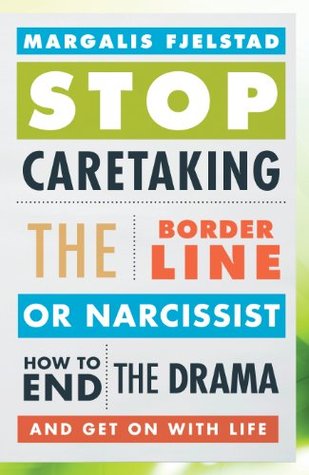More on this book
Community
Kindle Notes & Highlights
Read between
July 24 - July 26, 2021
very few of the people with these behavioral patterns ever become clinically diagnosed as BPD, but often they will be treated for one or more of their individual symptoms, such as anxiety, depression,
As long as they can maintain a false self, NPs are rarely willing to explore the inner pain and fear that they carry.
As a Caretaker, it is important that you learn to identify when you are dealing with someone who has these behaviors because they trigger your unhealthy response behaviors.
the needs and wants of the BP/NP significantly dominate the time, money, and energy of the entire family. The spouse of the BP/NP spends most of his or her time taking care of the BP/NP, and the children are expected to act like adults by taking care of themselves as well as doing what they can to appease the BP/NP. This results in reversed roles with parents acting childish and children being overly responsible.
Maybe your family was highly emotional and you learned how to be a calming influence. Maybe your family never shared or expressed emotions and you are hungry for feelings to be out in the open.
you will have learned to ignore your own needs, become adapted to a highly emotional, tense, and chaotic environment, and become hypervigilant to the BP/NP’s emotional reactions. Your job is to do everything that the BP/NP is not willing or able to do, give in to whatever the BP/NP wants, and carefully monitor the family’s image in the community.
Caretakers are people willing to put their own needs and wants on hold to help and/or please others. They have a tendency to feel hopeless and helpless when overwhelmed and have a great aversion to feeling or expressing anger. They are especially prone to being manipulated by fear, obligation, and guilt, whether coming from others or within yourself.
The BP/NP is often very intolerant of anyone else expressing emotion. So you have learned to ignore or repress your own feelings.
Anyone living in the circumstances of caretaking a mentally ill person for so long and with so little self-care and support would obviously be depressed. Anyone trying to deal alone with the unreality and distortions of the BP/NP’s world would ultimately become depressed.
Setting boundaries is a significant step toward moving from caretaking into self-care.
The biggest power the BP/NP has over you comes from your fear of his or her anger, drama, blaming you for his or her feelings, criticisms of you, and threats of leaving.
If you give in to the BP/NP’s demands, he or she will demand more.
You have to learn to stand calm and steadfast. Do not be defensive. Do not take the putdowns and emotional attacks of the BP/NP as meaning anything about you. Do not seek forgiveness for “causing” the BP/NP’s upset.
Being a Caretaker may have been your lifelong role/identity, so it could be a hard habit to break. You have felt obligated to do it. You have felt guilty for not doing it. You may have needed to do it with a BP/NP parent to make your life as a child bearable.
Some of the signs that you are with a BP/NP are the following: Family fights never change or improve the problem. Adult conflicts look just like two kids fighting. There is a lot of blaming of others. There is no forgiveness. Fights include sudden attacks and withdrawals. Disagreements are dramatic, emotional, and threatening.
The BP/NP focuses almost entirely on feelings rather than thinking. The BP/NP acts out, dwells on, and exaggerates feelings so that when you are around him or her, it can be difficult for you to think and make rational decisions.
Avoid long rides in a car, sitting around the house together, discussions about anything involving opinions or beliefs, or trying to work on a project together. These probably will not turn out well.
Pathological Altruism. No matter how hard you try in this relationship, you often feel disappointed, depressed, and unappreciated. Although you would like to be treated better, you ignore or reject help, compliments, and kindness from others, preferring to do things yourself. You often feel depressed.


